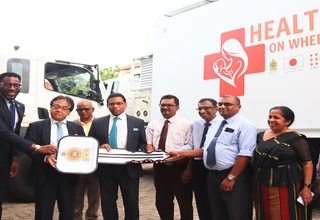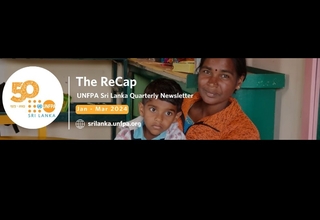You are here
UNFPA in Srilanka
UNFPA is the United Nations’ sexual and reproductive health agency. Since UNFPA started its work in 1969, the world has seen progress: The number and rate of women dying from complications of pregnancy or childbirth has been halved. Families are healthier. Young people are more connected and empowered than ever before. Women and girls are empowered to make choices on their reproductive rights.
More effort however, needs to be focused on those left behind. In Sri Lanka one in five (20.4%) ever-partnered women have experienced physical and/or sexual violence by an intimate partner in their lifetime (Women’s Wellbeing Survey, 2019). Young people have limited access to
comprehensive sexuality education with a reported 50% unaware about most aspects of basic sexual and reproductive issues, which exposes them to higher risks of HIV and unplanned pregnancies (National Youth Health Survey, 2013 & 2014).
The COVID-19 pandemic has also hampered progress, further exacerbating inequalities and existing vulnerabilities. Much more needs to be done to ensure a world in which all individuals can exercise their human rights, including those that relate to the most intimate and fundamental aspects of life.
UNFPA is working in Sri Lanka and the world-over to achieve three transformative results in line with the International Conference on Population and Development Agenda to reach:
- Zero unmet need for family planning
- Zero preventable maternal deaths
- Zero gender-based violence and harmful practices
To drive these results locally, UNFPA in Sri Lanka dedicated the year 2020 to comprehensively mainstream results based management across all functions of the organisation.
To achieve this goal, we work to ensure:
- Every adolescent and youth, in particular adolescent girls, is empowered with access to sexual and reproductive health and reproductive rights, in all contexts
- Gender equality, the empowerment of all women and girls, and reproductive rights are advanced in development and humanitarian settings
- Everyone, everywhere, is counted, and accounted for, in the pursuit of sustainable development



